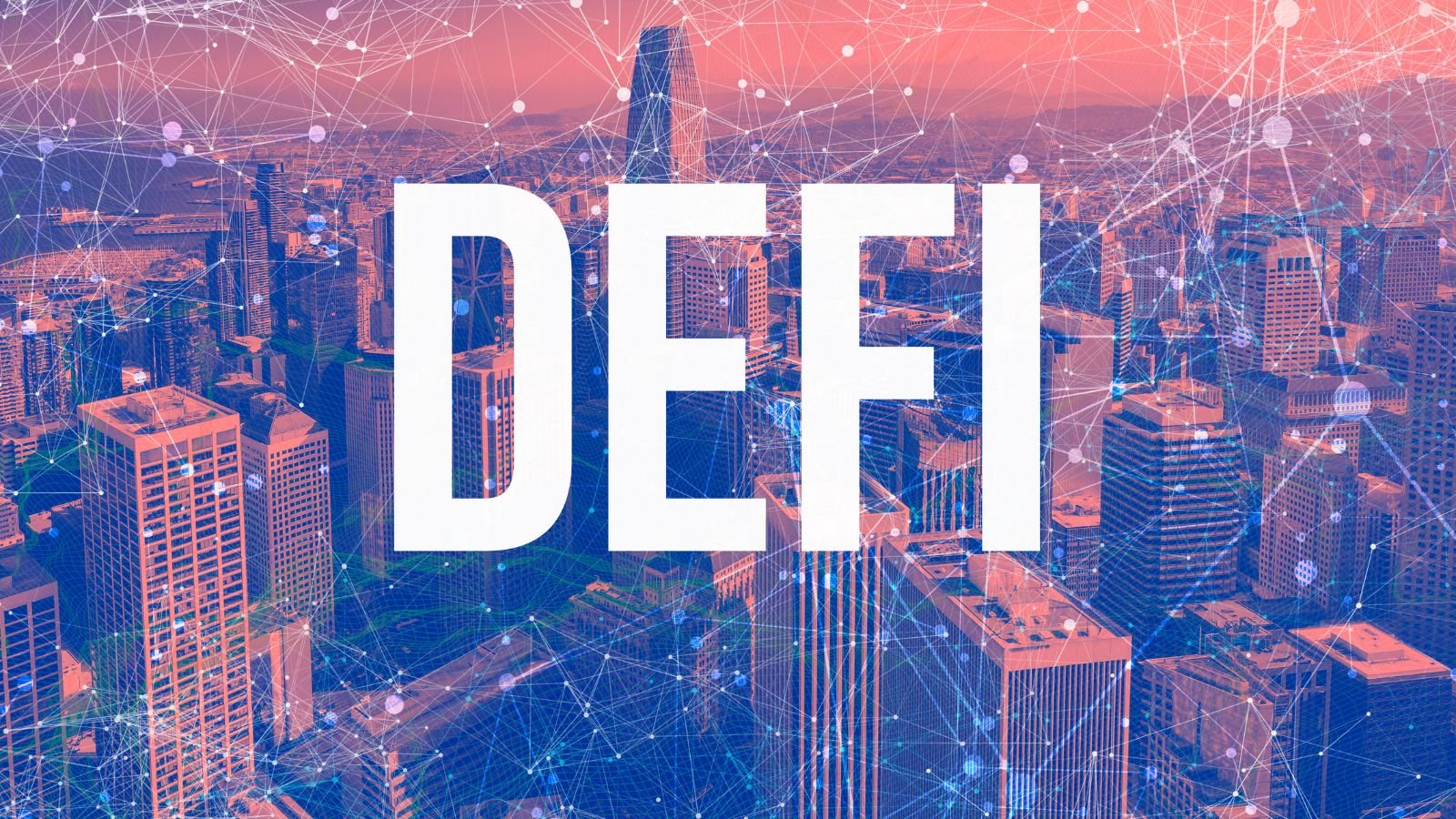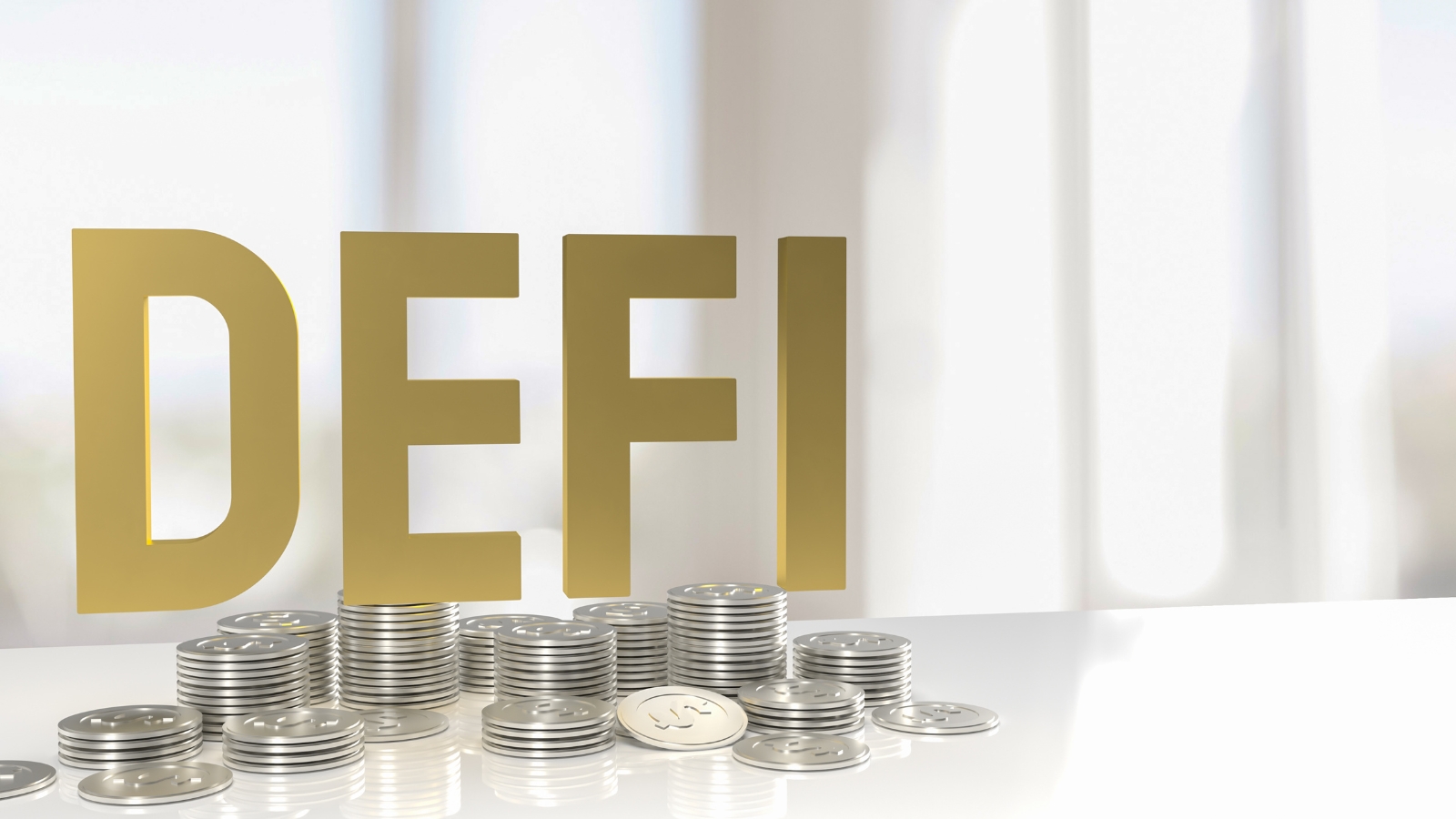Decoding the Popularity of DeFi Lending
HSBC, one of the largest banks in the world, recently leveraged blockchain technology to complete its first cross-border blockchain trade finance transaction for an international petroleum shipment. The bank was able to bring down the transaction time from an average of 5-10 days to less than 24 hours with this maiden transaction.
“I believe this will usher in a new era of routing international trade transactions as businesses and governments recognize transparency, security, and swiftness in performing tasks using blockchain technology,” said Md Mahbub ur Rahman, CEO of HSBC Bangladesh.
It’s not just him as industry experts unanimously agree on the benefits of using blockchain and on the disruption it is causing in the world of fintech when used for DeFi lending.
DeFi, an acronym used for Decentralized Finance, leverages the principles of blockchain to provide a simple alternative to the financial services we use today. Be it savings, loans, trading, or insurance, we can manage just about everything with blockchain-based smart contracts.
It's time we got used to the concept of DApp that's built on decentralized technology instead of being controlled by a centralized company or a financial institution. DeFi facilitates a more standardized economic system where security and transparency remain at the core of all DeFi transactions.
The blockchain revolution has undoubtedly ushered in promising times for DeFi lending giving enterprises greater power and transparency.
2020: definitely the year of ‘DeFi’
The total number of DeFi users in April 2021 is estimated to be 1,849,762 and the number has been growing steadily after a rapid growth since the beginning of 2020 that was touted as the year of DeFi. The Ethereum network now is at the heart of every DeFi conversation after the huge role it has played in giving DeFi the impetus and support in 2020.
While the first wave came in the form of Bitcoin, the second wave of DeFi came in the form of Ethereum blockchain. It was also the time when liquidity mining or yield farming became quite a sensation that caught everyone's imagination and fancy after lending platform Compound came up with its COMP governance token.
Both lenders and borrowers were eligible for the daily distribution of these tokens. Rewards grew as their prices rose to create a token economic model that was profitable for both lenders and borrowers.
With DeFi, you can leverage your crypto assets in ways that are otherwise impossible with fiat or 'real world' assets. Even Augmentum Fintech, the £190m investment trust from Europe, recently forayed into DeFi and the list continues to grow with new entrants eagerly jumping on to the DeFi bandwagon.
The ‘DeFi’ advantage
Developers get to build on top of existing protocols enjoying a higher level of freedom and interoperability with DeFi. They can customize interfaces and integrate third-party applications within the framework in a way that every element complements one another.
Peer-to-peer lending and borrowing protocols are integral aspects of the DeFi ecosystem. DeFi works in favor of ordinary people giving them greater power to lend, borrow, trade without losing out any money to the bank.
In a traditional scenario, a bank pays you interest for putting money into your savings account and uses that money for lending purposes at a much higher interest rate. They thrive on this differential amount but with DeFi coming into the picture, people can lend directly bypassing this whole process. DeFi lowers the barriers to make banking inclusive and available to even those who are otherwise unable to avail basic financial services due to gatekeeping.
As Rafael Cosman, CEO and co-founder of TrustToken rightly explains, “Decentralized finance is an unbundling of traditional finance. DeFi takes the key elements of the work done by banks, exchanges, and insurers today—like lending, borrowing, and trading—and puts it in the hands of regular people.”
Security first
DeFi is being driven by cryptocurrencies and blockchain that records each transaction in encrypted code in a decentralized distributed public ledger. This means all concerned parties have a copy of it making the entire transaction highly transparent.
A private key is required to send cryptocurrency on a blockchain just the way you would normally require passwords to authenticate your transactions. This key is transformed into a digital signature that is used to authenticate transactions and it can be shared easily with others while keeping the underlying private key safe and undisclosed all along. This is akin to you sharing your email id without divulging your password.
Being decentralized, blockchain networks are extremely robust and the fact that transactions are stored in multiple locations makes them almost immune to cyberattacks. And yet, anyone with a crypto wallet and a stable Internet connection can use DeFi applications without any requirement of maintaining a certain amount of funds. This inherent robustness and transparency are largely responsible for making DeFi so popular in the fintech sector.
Distributed Ledger Technology (DLT) eliminates the need of having trusted third parties or intermediaries to process or manage lending since there are smart contracts to take care of it. DApps ensure transparency since all decisions are based on smart contracts.
DeFi lending works well for lenders as well as borrowers and allows long-term investors to lend assets too. Users can lend their crypto and earn interest. Users can even pool their assets and then offer them to borrowers via smart contracts.
Regulating DeFi
From $686 million on January 01, 2020, to a whopping $15.6 billion in just a year, the DeFi market has demonstrated tremendous growth disrupting the financial sector like never before.
It makes unsecured lending feasible while minimizing the risk of over-collateralization. Valuation of assets is not necessary for DeFi lending as cryptocurrencies are allowed as collateral at their current exchange rate.
Yet, despite its immense popularity and potential, some cringe at the thought of its inability to hold a particular person or entity accountable in case of technological failures. ‘Is it possible to regulate DeFi?’ they wonder.
The Financial Actions Task Force or FATF, the global anti-money laundering watchdog, makes 'know your customer' mandatory on DeFi platforms to know which parties are transacting through them. Having said that, different countries are further implementing necessary measures to ensure DeFi remains a safe and viable means of lending. In addition, there are know-your-transaction or KYT mechanisms in place to help assess risk in real-time. They rely on Ethereum's decentralized infrastructure that enables compliance analysis of activity patterns observed around participating addresses instead of participant identity.
DeFi is the perfect example of FOMO where people do not want to be left out from witnessing its tremendous growth and experiencing everything it has in store. There are new and innovative platforms underway and new use cases waiting to be added to further encourage user participation.
DeFi presents a paradigm shift in financial infrastructure and offers countless advantages to the world in a highly secure environment to enhance transparency around lending practices. Clearly, 2021 too belongs to DeFi, but the question is – Are you ready to embrace it?
Lead with TransformHub
Our blockchain experts at TransformHub are eager to help you realize its full potential and leverage it across industries including fintech. With a unique blend of strategy, expertise, and technology, our digitally ready team of experts assist our clients in solving complex business challenges and developing blockchain platforms and solutions.
Reach out to us to leverage the DeFi revolution in your Business.
Call us at +65 9198 4440 or write to us at info@transformhub.com for a free consultation and we'd be happy to tell you more.
Bala K Pasumarthi
Group Chief Technology Officer
TransformHub - Banking & Finance | Fintech | Insurance | Retail | Technology
Share this
You May Also Like
These Related Stories

The Evolution of Decentralized Finance

The DeFi Challenge to Traditional Banking - What Banks Need to Know




